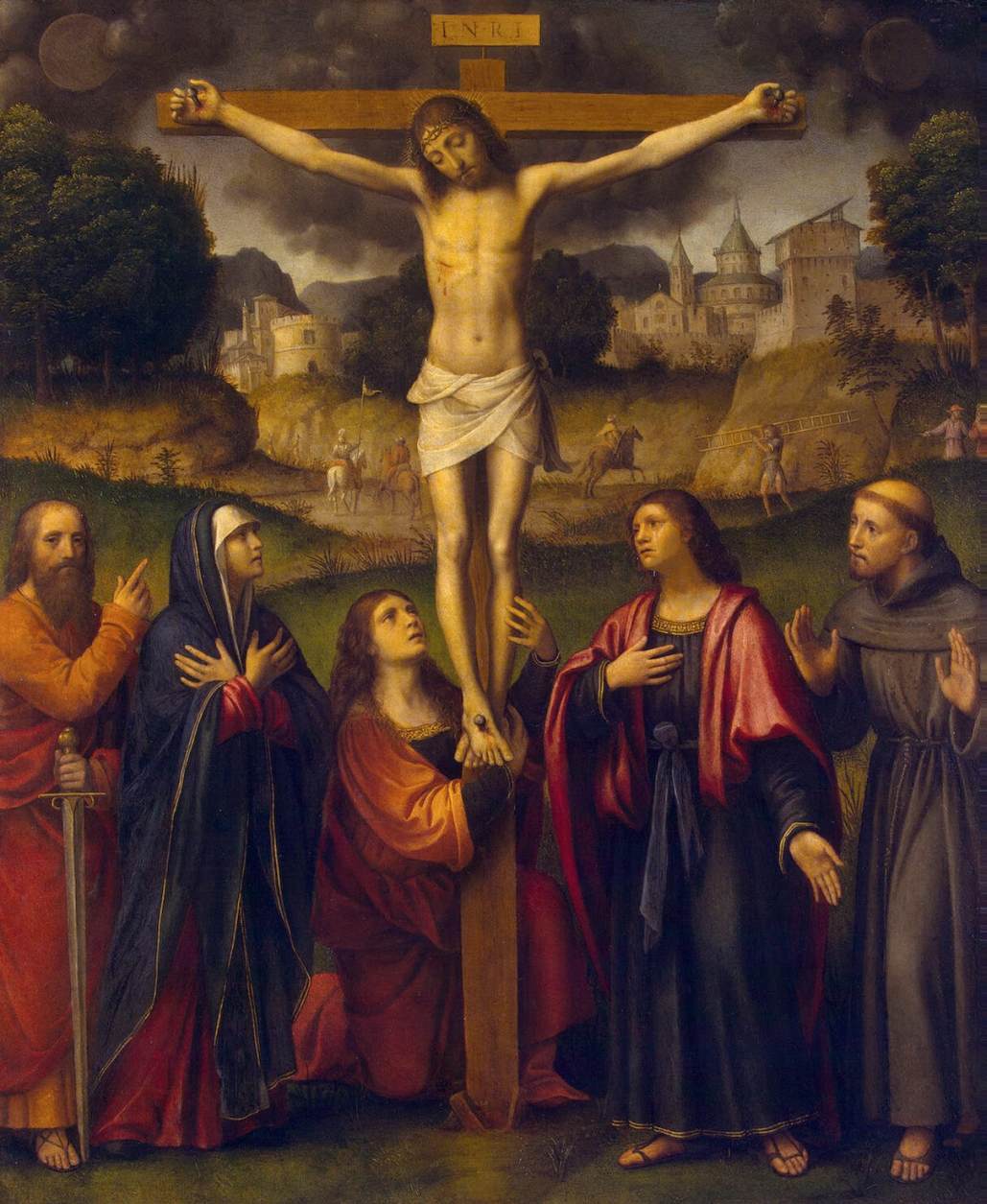Description
Bernardino Luini's Crucifixion painting is an Italian Renaissance masterpiece that has captivated art lovers for centuries. This artwork was created in the 16th century and its original size is 90 x 74 cm.
One of the most interesting aspects of this painting is its artistic style. Luini was a master of the pictorial style known as "leonardesque", which is characterized by its delicacy, softness and refinement. This technique is based on the use of soft colors and pastel tones, which create an atmosphere of serenity and harmony.
The composition of the painting is also impressive. The figure of Christ on the cross occupies the center of the image, surrounded by a rocky landscape and a multitude of characters who express pain and suffering. The arrangement of the characters and the details of the scene create a sense of depth and perspective that is impressive.
Regarding color, Luini uses a palette of warm and soft tones that create an atmosphere of tranquility and serenity. Gold and red tones predominate in the painting, creating a feeling of warmth and spirituality.
The history of the painting is also fascinating. It is believed that it was commissioned by Cardinal Federico Borromeo in the 16th century and that it was part of his private collection. The work has been the object of study and analysis by art experts, and has been considered one of Luini's best works.
Regarding the little-known aspects of the painting, it is known that Luini used live models to create the figures of the characters that appear in the work. Furthermore, it is believed that the painting was created in a period of great artistic activity for Luini, during which he also created other masterpieces such as the Madonna and Child with Saint John the Baptist.
In summary, Bernardino Luini's Crucifixion painting is an impressive work of art that combines technique, composition and color in a masterful way. Its history and little-known details make this work even more interesting and fascinating for art lovers.

